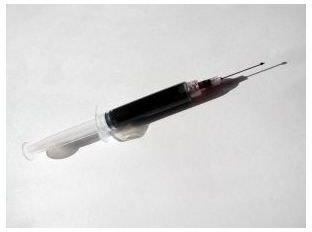About the Liver Profile Blood Test and its Significance
Background
The liver profile blood test is a simple test for assessing liver function. It requires a blood sample drawn from one of your veins. No preparation is necessary on your part, though the test can deliver more accurate results if you have fasted 8 to 12 hours before.
Your doctor may order this test if you have risk factors associated with liver disease. She may also request this test if you are experiencing symptoms such as nausea and fatigue. She may also order this test for baseline information for your medical record when you get older or develop other health conditions such as high blood pressure.
Testing
The liver profile measures the levels of several enzymes and proteins. The test results are interpreted as a whole to determine a diagnosis. As a diagnostic tool, it is an effective and non-invasive way to help your doctor determine your state of health. The chemicals tested can identify specific health conditions.
Conditions Detected
A liver profile can detect several health conditions. For example, an elevated level of bilirubin can indicate a bile duct obstruction. Bilirubin is a by-product of the normal breakdown of red blood cells which have a lifespan of about 120 days.
Decreases in normal albumin levels can be a sign of cirrhosis, cancer, or an autoimmune disorder. Albumin is a water-soluble protein found in blood plasma. The test, however, is only the first step in a definitive diagnosis of liver disease. Based on the liver profile results, your doctor may follow up with a liver biopsy or imaging scans.
Other Applications
Other health conditions unrelated to liver disease may warrant regular liver profile tests. Some arthritis drugs may impair liver function. This may be detected by elevated levels of certain liver enzymes. Statin drugs used to reduce total cholesterol and LDL or bad cholesterol may also cause liver damage.
As part of your regular annual exam, your doctor will likely order this test to assess the effects of your medication on liver function. Some doctors may also run this test before you undergo surgery to make sure that your liver can properly process the anesthesia. One of the numerous functions of the liver is to metabolize toxins.
The test can also determine if you have a vitamin K deficiency. Vitamin K is essential for the synthesis of several clotting factors. Elevated levels of another type of protein called prothrombin may point to this condition. If you are taking a blood thinner such as warfarin, your doctor may routinely check your vitamin K levels because of the possible drug interactions with this medication.
The liver profile blood test results should come back to your doctor within a day, depending upon their lab set up. Armed with this information, your doctor can take the next necessary steps for keeping you healthy.
References
Health-Care-Information: Blood Test : Liver Profile health-care-information.org
Nemours Foundation: Blood Test: Liver Function Panel kidshealth.org
G. Tortora et al. Principles of Anatomy and Physiology. 2005.
Photo by Maria Herrera, stock.xchng
